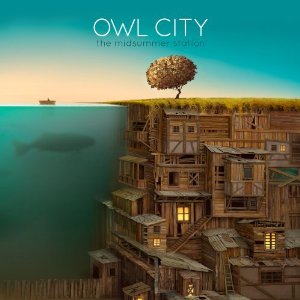On Aug. 14, Owl City paved a new beginning with the release of his album “The Midsummer Station.” The lighthearted album name and picturesque cover art create the misconception that paradise is near and happiness is inevitable.
Owl City made a name for himself with the 2009 hit “Fireflies” and established a unique style that can be recognized in any context. Singer Adam Young attracts younger fans with his optimistic approach and unwavering promise of their well-being. He subtly reassures his fans that everything will be okay in his lyrics.
Although Owl City is famous for his easy-on-the-ears music and typically calm and cheerful songs, this album offers a contrast. The track “Silhouette” conveys loneliness and frustration as a result of heartbreak. “The more I try to move on, the more I feel alone” doesn’t create the classic Owl City mood of hope. Young’s new album also consists of songs with a faster pace than those on his previous albums.
Young introduces “The Midsummer Station” with the upbeat song “Dreams and Disasters”, which begins slowly, and gradually speeds up to the climax point. The repetition of the lyrics “follow the line through the dreams and disasters” creates a welcoming ambience. Accompanied by “Call Me Maybe” singer Carly Rae Jepsen, Young released the single “Good Time” – a fun, feel-good song. All the songs on the album are for the most part enjoyable, such as the track “Gold”, with its thrilling and inspiring beat. However, many invoke the sound of songs from other artists. “Shooting Star” sounds vaguely similar to Katy Perry’s “Firework” with the “whoa” and steady beat that later intensifies.
Although Young’s last summer album “All Things Bright and Beautiful” was an upgrade from “Ocean Eyes”, the preceding album, it wasn’t popularly received and remained unfamiliar. Similarly, Young’s new album lacks the prominence anticipated from his fans and blends in with his prior albums.
However, knowing Young and his talent for songwriting and music, his fans can definitely look forward to listening to “The Midsummer Station.”

















